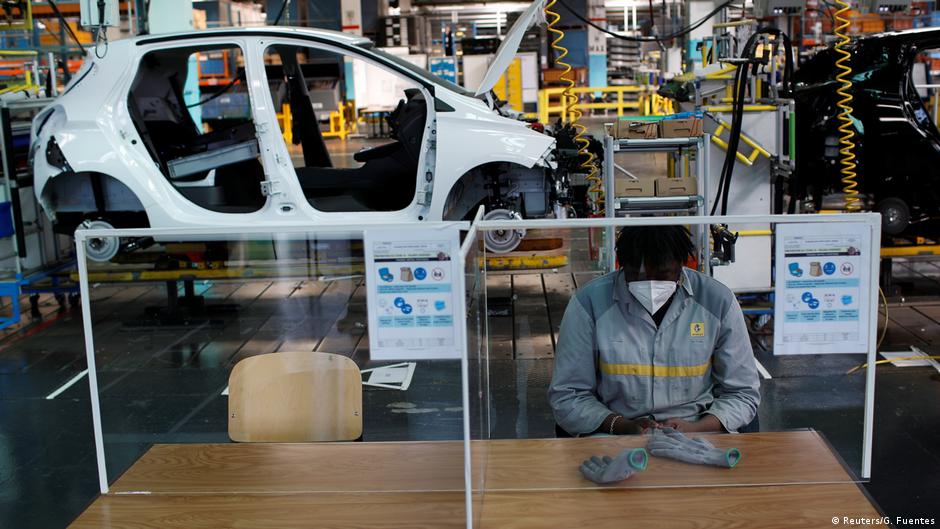
France unveils stimulus plan worth €8 billion for car industry
The package includes an increase to the state subsidies given to motivate potential buyers of new electric and hybrid cars. The plan also includes a state loan worth €5 billion for troubled carmaker Renault.
On Tuesday, France's President, Emmanuel Macron, unveiled a plan worth €8 billion ($8.8 billion) for the country's automotive industry. A part of the stimulus will be directed to boost local manufacturing of electric and hybrid cars, and incentivize buyers towards lower-emissions models through increased government subsidies.
"We need to not only save the industry but transform it," said Macron at a press conference at a factory of Valeo SA, a French automotive parts maker.
France is among the world's premier car manufacturing countries — home to Renault, Citroen and Peugeot, and to the world motoring federation, the FIA.
Read more: EU car sales sink to record-low levels
Boost car buying and local manufacturing
Macron said that France would increase the government's contribution towards people buying new electric cars to €7,000 from the current €6,000. Companies buying electric fleet cars would be eligible for €5,000. Electric cars remain considerably more costly than equivalent models powered by internal combustion, often weighing in at around twice the price.
People buying new diesel or petrol cars may also qualify for up to €3,000 — if they can demonstrate their new vehicle is cleaner than their old one. Macron expects the stimulus to boost sales of unsold cars in French showrooms.
France's premier also insisted that the car models currently being manufactured in France shouldn't move abroad. Under the stimulus plan, France aims to produce over 1 million clean energy cars by 2025.

Earnings slump
At German premium carmaker Daimler, net profit fell 78% in the first quarter, bleeding the company's cash position down to a meager €617 million ($662 million). Securing liquidity has top priority now, says CFO Harald Wilhelm, as he throws out guidance for the year. Slumping demand, struggling parts supply and a difficult restart of production makes any outlook impossible, he says.
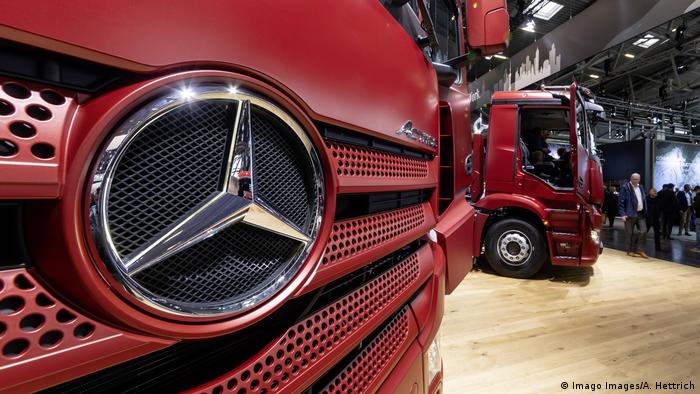
A 20% dive
Daimler's trucks business has been hit especially hard in the first three months of 2020, with sales slumping 20% compared with the same period last year. The company's luxury brand, Mercedes-Benz, also suffered a decline — down by 15% even though global showrooms and factories had remained open until March.
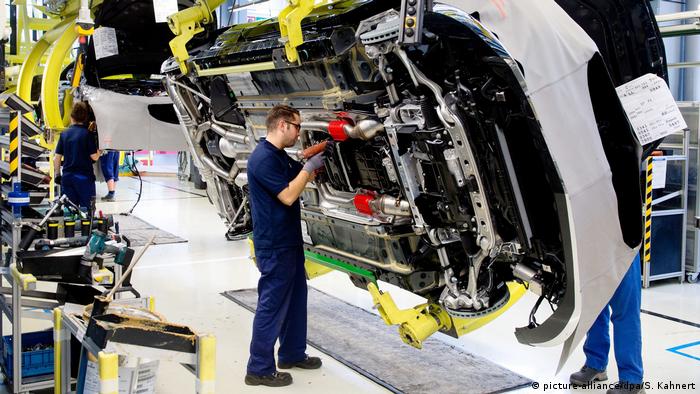
After the shutdown
The complete halt of production at Daimler lasted four weeks, with about 80% of its 170,000 employees being out of work and sustaining themselves through Germany's short-time work scheme. Although factories have been opening since Monday (April 20), most staff will remain dependent on the state-funded wage compensation until the end of April.
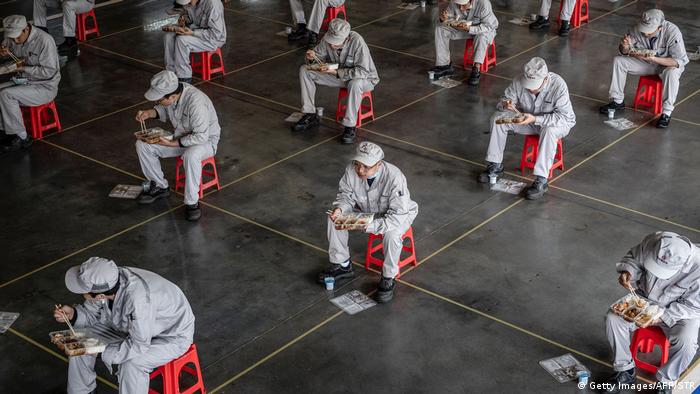
Tentative recovery
Chinese autoworkers, like those at Honda's Dongfeng plant (pictured), have already resumed work, hoping for sales in the world's largest car market to pick up again. While in February car sales in China collapsed by 80%, there was light at the end of the tunnel in March with declines slowing to 48%. Meanwhile, all of Daimler's production plants in the country are back in operation.
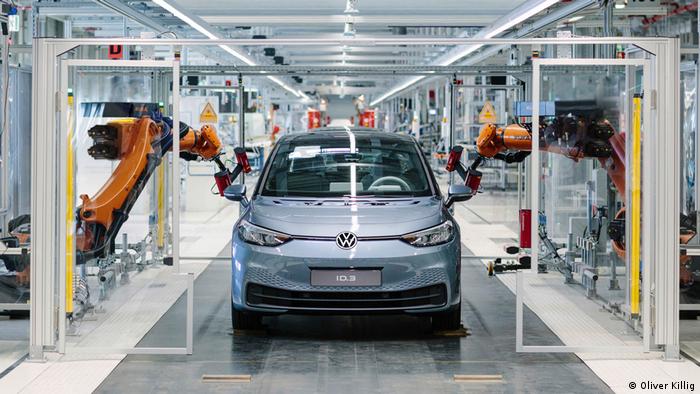
Assembly lines rolling again
The world's largest carmaker by sales, Volkswagen, has reopened its factory in Zwickau, Germany, pressing ahead with the production of its ID.3 electric car. Despite a 5-week work stoppage at the plant, VW says efforts to roll out the pivotal mass-market electric vehicle this summer are still on time. Engine production at VW's Chemnitz plant though is only gradually being scaled up.

Main factory sitting idle
VW's largest production facility in Wolfsburg, Germany, however will remain shuttered at least until Monday (April 27). So will its plants in Emden and Hanover. Security protocols, including heavy-duty disinfecting and cleaning, will be put in place, says VW. Where social distancing measures aren't possible, workers are obliged to wear face masks.
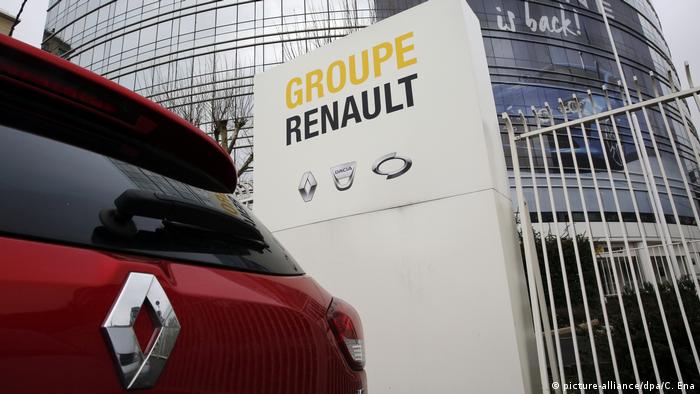
Melting cash buffers
At Renault in France, the coronavirus-induced shutdown has led to a massive drop in revenue, down by 20% on a decline in unit sales of more than a quarter. The slump has been hemorrhaging the company's cash reserves by about a third, but that still leaves €10.3 billion in Renault's coffers.
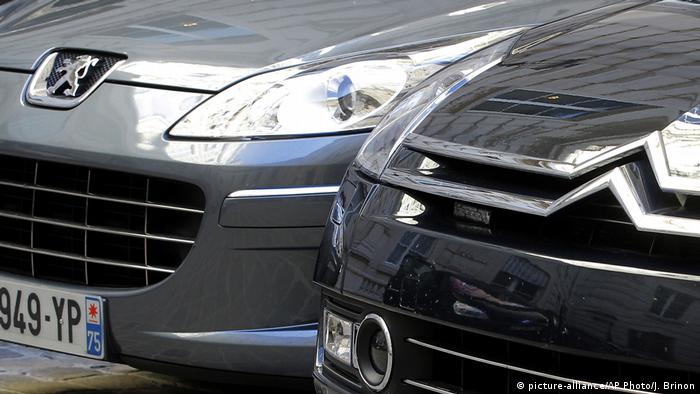
PSA reopening plan still missing
French carmaker PSA, including the Peugeot, Citroen and Opel brands, saw its first-quarter unit sales even more clobbered than those of its national rival. It sold a staggering 627,000 vehicles less than a year before, down 29%. So far, PSA has not given any date for reopening its European plants, citing ongoing talks with labor unions about pandemic security precautions.
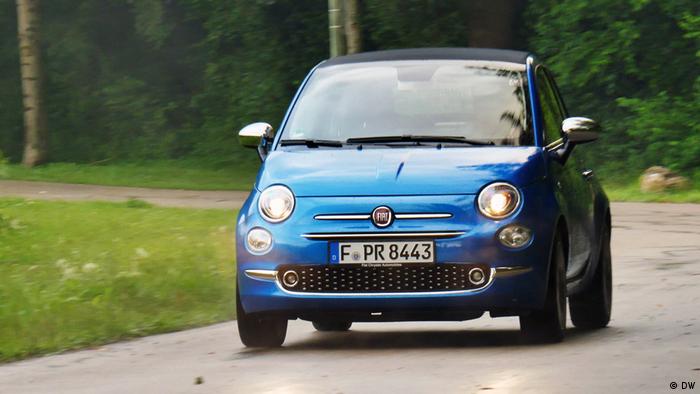
Auto news from the EU epicenter
In Italy, one of the worst-hit EU country in the current pandemic, the complete shutdown of all industries will not be relaxed before May 4. So the country's top carmaker, Fiat Chrysler, will continue to suffer enormous losses, already amounting to 76% fewer cars sold in March. By comparison, Europe-wide auto sales slumped by "only" 55% on average during the month.
Author: Andreas Rostek-Buetti
Renault gets its loans, but must keep French factories open
The €8 billion plan includes a state loan worth €5 billion for troubled French carmaker, Renault SA. However, Macron said that the loan was contingent on Renault keeping two key plants in France open. The partially state-owned company was also expected to join a Franco-German project producing new electric batteries in order to receive state assistance.
Renault is expected to unveil a cost-cutting plan worth $2.2 billion (€2 billion) this week. Under the plan, the automaker may slash up to 5,000 jobs over four years and repurpose and close some plants, according to French daily newspaper Le Figaro.
On May 26, unions blockaded a Renault factory in western France, fearing factory closure and job losses owing to the coronavirus pandemic. About 400,000 people are directly employed in the automotive industry in France.
am/msh (AFP, dpa, Reuters)